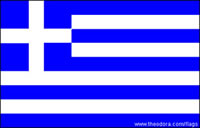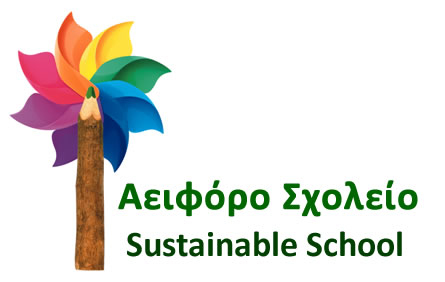Member States of the EU
Greece (Hellas)

The flag of Greece (Hellas)
-
Year of EU entry: 1981
-
Political system: Parliamentary Republic
-
Capital city: Athens
-
Total area: 131 957 km²
-
Population: 11.2 million
-
Currency: euro
-
Listen to the official EU language:
Greek -
Religion
Christian Greek Orthodox (95-98%), Muslim (1.3%), and other religions -
Climate
Humid and mellow winters, warm, sunny and dry summers -
Time Zone
GMT + 2 hours -
Dial Code
+30 The map of Greece (Hellas)
The map of Greece (Hellas)
Located near the crossroads of Europe and Asia, Greece forms the southern extremity of the Balkan peninsula in south-east Europe. Its territory includes more than 2 000 islands in the Aegean and Ionian seas, of which only around 165 are inhabited. Mount Olympus is the highest point in the country.
Greece is one of the cradles of European civilisation, whose ancient scholars made great advances in philosophy, medicine, mathematics and astronomy. Their city-states were pioneers in developing democratic forms of government. The historical and cultural heritage of Greece continues to resonate throughout the modern world – in literature, art, philosophy and politics.

| Modern Greece has a republican structure based on the constitution of 1975. The 300 members of the single-chamber parliament are elected for a period of four years. The country is divided into 13 administrative regions.
More than 50% of Greek industry is located in the Greater Athens area, the main economic sectors being agriculture, tourism, construction and shipping. The best-known contemporary Greeks include the film-maker Kostas Gavras, the Nobel Prize winner Odysseus Elitis and composer Mikis Theodorakis. Greek cuisine is based on goat meat and mutton. Fish dishes are also popular. Olive oil, which is produced in large quantities, adds to the distinctive taste of Greek food. |
Useful Links
- National public administration portal The Ministry of Foreign Affairs website offers detailed information on Greece, ranging from the text of the Greek constitution to practical information for tourists. It also contains contact details for all the Greek embassies and consulates abroad and for foreign representations in Greece. There is a special section for Greek expatriates. Users can also follow current affairs in Greece by consulting official press releases. The site presents the key issues in Greek foreign policy, including a special section on the European Union.
- Introduction to the country The official site of the Greek National Tourism Organisation provides information on travel and business. The travel section contains practical information for those wishing to visit Greece. It is a useful guide to discover the main attractions in Greece as well as to find accommodation. The site also displays a number of photos, posters and maps to give visitors a real insight into the country.




